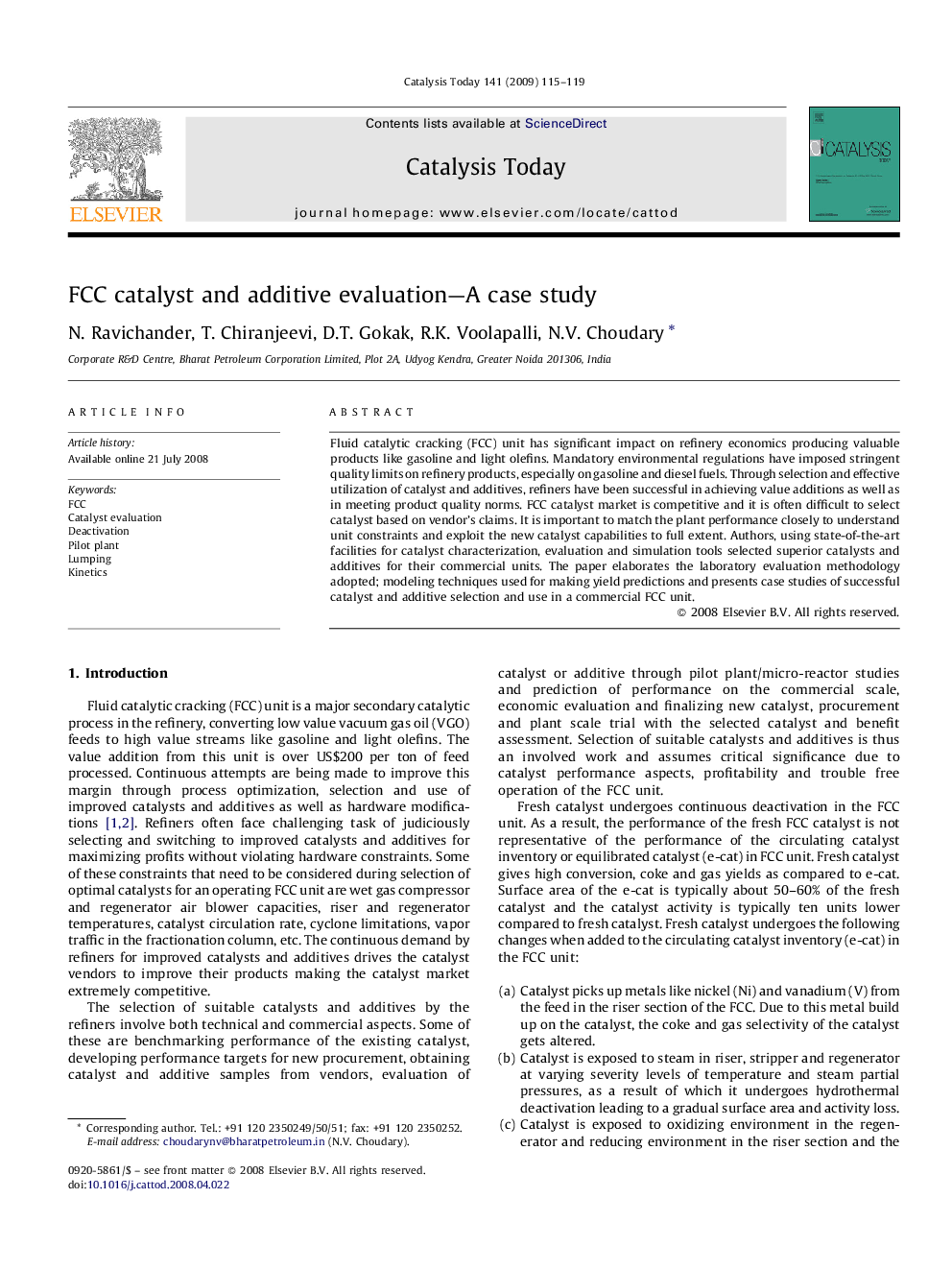| Article ID | Journal | Published Year | Pages | File Type |
|---|---|---|---|---|
| 57007 | Catalysis Today | 2009 | 5 Pages |
Fluid catalytic cracking (FCC) unit has significant impact on refinery economics producing valuable products like gasoline and light olefins. Mandatory environmental regulations have imposed stringent quality limits on refinery products, especially on gasoline and diesel fuels. Through selection and effective utilization of catalyst and additives, refiners have been successful in achieving value additions as well as in meeting product quality norms. FCC catalyst market is competitive and it is often difficult to select catalyst based on vendor's claims. It is important to match the plant performance closely to understand unit constraints and exploit the new catalyst capabilities to full extent. Authors, using state-of-the-art facilities for catalyst characterization, evaluation and simulation tools selected superior catalysts and additives for their commercial units. The paper elaborates the laboratory evaluation methodology adopted; modeling techniques used for making yield predictions and presents case studies of successful catalyst and additive selection and use in a commercial FCC unit.
